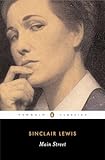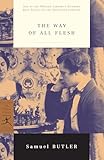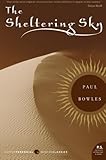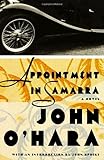I borrowed Howards End from my local university library, an early edition in a sturdy and narrow-margined library binding. Pages from these kinds of books don’t tear — over half centuries and quarter centuries of tugging and smoothing and creasing by grubby fingers, they achieve a fine cloth-like texture that no e-reader can hope to replicate. I think that libraries are worth our patronage for the feeling of these pages alone. They are the impressions worn by feet on the path to the Parthenon. They are the pig’s teeth wedged in a wych-elm by superstitious peasants.
People who love books are always telling high school students that reading opens doors, that old books will surprise you with their sudden relevance, the startling light they can cast onto your own life. This is such a true thing about reading that it feels stupid to say of one or another book that it reminded you of a feeling you’ve had, or that its themes resonate in the present day. On this front, Howards End should have lots to say to me. Like its Miss Schlegels, I am a bookish, opinionated lady with claims to progressive values. Like that of the Schlegels, my imperial nation is rife with inequality, class division, and economic precarity for the Leonard Bast class of people with aspirations but no advantages. Even the search for a suitable lodging is familiar: “We are reverting to the civilisation of luggage, and historians of the future will note how the middle classes accreted possessions without taking root in the earth, and may find in this the secret of their imaginative poverty.” There is much to which I can relate. But Howards End makes me think instead about things that are different and gone — farmland and buildings and ideals and ways of thinking and kinds of conversation and styles of beautiful writing.
 There is a painful, almost superfluously beautiful quality to Forster’s writing that attracts me to this book even while I find that Forster’s class sensibility, fine as it is and perfect in Passage to India (revued here), ultimately can’t do the necessary and make Leonard Bast a real person. He dies, as he lived, a silly, pitiful, and unprepossessing little man. (This may be a failure of imagination on my end, but it is difficult to see how Helen Schlegel could be so susceptible to his obscure charm as to succumb utterly to it in a hotel sitting-room.) But if Passage to India showed Forster at his most pointed about people, Howards End is his ode to places (and not only the place for which it is named):
There is a painful, almost superfluously beautiful quality to Forster’s writing that attracts me to this book even while I find that Forster’s class sensibility, fine as it is and perfect in Passage to India (revued here), ultimately can’t do the necessary and make Leonard Bast a real person. He dies, as he lived, a silly, pitiful, and unprepossessing little man. (This may be a failure of imagination on my end, but it is difficult to see how Helen Schlegel could be so susceptible to his obscure charm as to succumb utterly to it in a hotel sitting-room.) But if Passage to India showed Forster at his most pointed about people, Howards End is his ode to places (and not only the place for which it is named):
Shropshire had not the reticence of Hertfordshire. Though robbed of half its magic by swift movement, it still conveyed the sense of hills…Having picked up another guest, they turned southward, avoiding the greater mountains, but conscious of an occasional summit, rounded and mild, whose colouring differed in quality from that of the lower earth, and whose contours altered more slowly. Quiet mysteries were in progress behind those tossing horizons: the West, as ever, was retreating with some secret which may not be worth the discovery, but which no practical man will ever discover.
Forster’s writing mixes poetry and aphorism in a way that makes whatever he writes sound totally convincing and meaningful, even if, for all I know, it is nonsense. Of Margaret Schlegel’s gradual retiring from society, he writes, “It was doubtless a pity not to keep up with Wedekind or John, but some closing of the gates is inevitable after thirty, if the mind itself is to become a creative power.” Of life he writes, “It is indeed unmanageable, but the essence of it is not a battle. It is unmanageable because it is a romance, and its essence is romantic beauty.” People write in all kinds of good ways, but it is a tragedy that nobody writes like this anymore.
Howards End, published 1910, is technically a pre-war novel in the WWI sense, and it frequently invites you to think of it on those terms (“the remark, ‘England and Germany are bound to fight,’ renders war a little more likely each time that it is made, and is therefore made the more readily by the gutter press of either nation”). A few years later, the stolid Wilcox men who form the upstanding backbone of British society in Margaret’s perception would be largely unavailable for theoretical debates with liberated young women; they would likely be dead, along with nearly a million of their compatriots, or maimed, along with the rest.
 That said, another book in my pile this spring had me thinking about a different war. Just after Howards End I read W.G. Sebald’s Austerlitz, a book whose construction around a portentous negative space has the effect of drawing all neighboring books into its central darkness, like a dying star. Everything becomes tinged with this darkness. (I have also been working through the novels of Anita Brookner, many of which feature Jews so thoroughly English that their eastern European origins signify only as a piece of ponderous furniture or a grandmother’s accent, and I began to wonder if these novels, too — if all novels — are actually about the Holocaust.)
That said, another book in my pile this spring had me thinking about a different war. Just after Howards End I read W.G. Sebald’s Austerlitz, a book whose construction around a portentous negative space has the effect of drawing all neighboring books into its central darkness, like a dying star. Everything becomes tinged with this darkness. (I have also been working through the novels of Anita Brookner, many of which feature Jews so thoroughly English that their eastern European origins signify only as a piece of ponderous furniture or a grandmother’s accent, and I began to wonder if these novels, too — if all novels — are actually about the Holocaust.)
And yet Austerlitz and the second World War seemed to form a fitting complement to Howards End — the latter’s interest in civilization and the built environment and the natural world and material culture slotting into Sebald’s voids in the same realms. The character Austerlitz has spent in his life in “investigations into the history of architecture and civilization,” and the novel Austerlitz is full of symbolic architectural monstrosities — “the accumulation of stone blocks” — and spaces stuffed with meaning. The novel’s narrator describes London, its “districts…crisscrossed by innumerable streets and railway lines, crowding ever more closely together as they marched east and north, one reef of buildings above the next and then the next, and so on, far beyond Holloway and Highbury…” I was reminded of Margaret Schlegel’s similar impression of London as she puzzles through her sister Helen’s disappearance: “The mask fell off the city, and she saw it for what it really is — a caricature of infinity…” She searches in St. Paul’s, “whose dome stands out of the welter so bravely, as if preaching the gospel. But within, St. Paul’s is as its surroundings — echoes and whispers, inaudible songs, invisible mosaics, wet footmarks crossing and recrossing the floor. Si monumentum requiris, circumspice: it points us back to London.”
I didn’t see clearly what a tender and hopeful book Howards End is until I read Austerlitz. And a sad one. It’s a prelapsarian mirror image. How devastating Forster’s observation about the “civilisation of luggage” becomes when you consider the eventual mounds of plundered luggage sitting in warehouses around Europe. Or Mrs. Wilcox’s lament: “Can what they call civilisation be right, if people mayn’t die in the room where they were born?” How poignant half-German Margaret is, with her belief in the “salvation that was latent…in the soul of every man.” How sad to contemplate her mantra, “Only connect,” in the context of Austerlitz’s dead mama and papa and his abrupt transformation to a little Welsh boy. How sentimental Forster seems when he writes that:
London was but a foretaste of this nomadic civilisation which is altering human nature so profoundly, and throws upon personal relations a stress greater than they have ever borne before. Under cosmopolitanism, if it comes, we shall receive no help from the earth. Trees and meadows and mountains will only be a spectacle, and the binding force that they once exercised on character must be entrusted to Love alone. May Love be equal to the task!
I have always found there to be something lumpy and friendly and comforting about Howards End — it’s like a big, old sweater. But I see that there is something a little weird about that. I yank it away from Austerlitz’s gravitational pull, and I don’t quite see now why it should feel like such a hopeful, tender, happy novel, when it leaves a dead man and an imprisoned man and a crumpled man in its wake. Perhaps because it’s sort of a feminine triumphal. Fighting for her right to spend the night with her pregnant sister in Howards End, Margaret Schlegel delivers the most just and crushing indictment of misogyny and the double standard ever written. And she gets her way, and the dead Mrs. Wilcox gets her way, and the men die or are locked up or have a nervous breakdown, each condition divesting its victim of all former imperiousness and other unsavory qualities. The women win, and they get their beautifully cozy pastoral unwed mothers’ commune, an easy distance from London. They found a Home, and they will “create new sanctities” in it. It does sound nice.
In my sturdy library copy, generations of readers have penciled their notes and little stars. I tip my hat to the analytical one, a Marxist no doubt, who helped me to see that Leonard Bast’s ignorance of the Sunday paper signified “commodifying, economizing knowledge at every turn!” I raise a glass to the one who wrote of Leonard’s meager dwelling that it is “projected fake, shallow, comme moi!” I applaud the one who pointed out succinctly on the penultimate page that Margaret’s husband “becomes a pussy.” We are all more alike than we are different.
Only connect, and all that.









